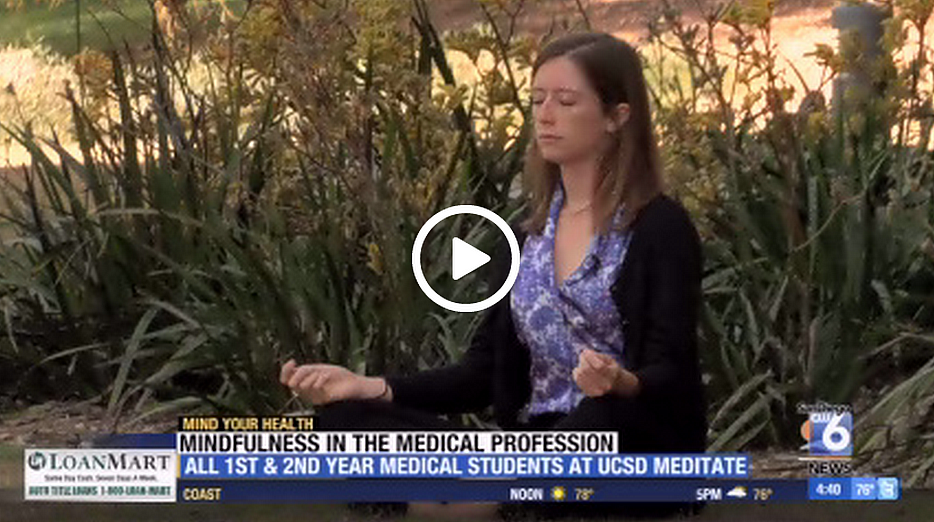Mind Your Health: Mindful medicine (Part 2)
Neda Iranpour wrote and produced this "Mind Your Health" series as part of her project for the 2015 California Health Journalism Fellowship, a program of the University of Southern California's Annenberg School of Journalism.
Other stories in the series include:

In Part 2 of this San Diego 6 News exclusive series called “Mind Your Health” we look at meditation in the medical profession. While we may think doctors and medical students don’t have time to “sit still,” UC San Diego is discovering the act of meditating is helping create better medical professionals. UCSD’s Center for Mindfulness is now one of the leaders in the practice, serving as an example to many universities and hospitals.
Antoinette Mason is in her second year as a medical student at UC San Diego. Amid all the chaos, she finds calming, “it’s really important for me to detach myself and be very present with my body.” Mason spends a few minutes a day in meditation, helping her brain rest and reset, “it gives you a moment to take a break which is perfect (during) that high intensity stress.”
Mason learned mindfulness from a course now being offered at UC San Diego. It used to only be available as an elective. Now, UCSD's Center for Mindfulness teaches meditation to all 1st and 2nd-year medical students. The students are being studied on the impacts of meditation, and other universities are following San Diego's lead.
The Executive Director of UCSD’s Center for Mindfulness, Dr. Steven Hickman explained, “as long as you’re breathing there’s more right with you than wrong with you.” He says the weekly guided meditation for med students isn't just to ease their stress, “they're more present they'll be more effective doctors who make fewer errors.”
Some practicing physicians are practicing mindfulness as well by taking time to sit still and breathe deeply. UCSD Pulmonologist Dr. Ni-Cheng Liang suffered from cancer 4 years ago and incorporated yoga and meditation while undergoing chemotherapy. Now, she’s back to practicing pulmonary medicine and is teaching her patients to take moments of mindfulness, “if they are short of breathe I will offer this as adjunctive therapy.”
She also began a pilot study on how slow breathing can impact chronic lung problems, “we know asthma can be triggered by stress. If there's a non medicinal way of mitigating that and decreasing stress and anxiety that has little downside or side effects, why not offer it?”
But not everyone easily accepts the practice. Skeptics have led to more mindfulness studies now than ever before. Dr. Hickman said, “the number of studies show positive changes in way the brain works, changes in the immune system.” They're even tracking changes in cellular aging, “people are now looking more deeply to understand what’s happening in the brain and what’s happening in the body when people are, what looks like, doing nothing.”
Plus, when famous people like Oprah, Deepak Chopra, Russel Brand, Cameran Diaz, even Katy Perry are trying it, more patients are asking for it. So UCSD is ensuring current doctors and aspiring ones are ready for their patients' requests.
[This story was originally published by San Diego 6.]

